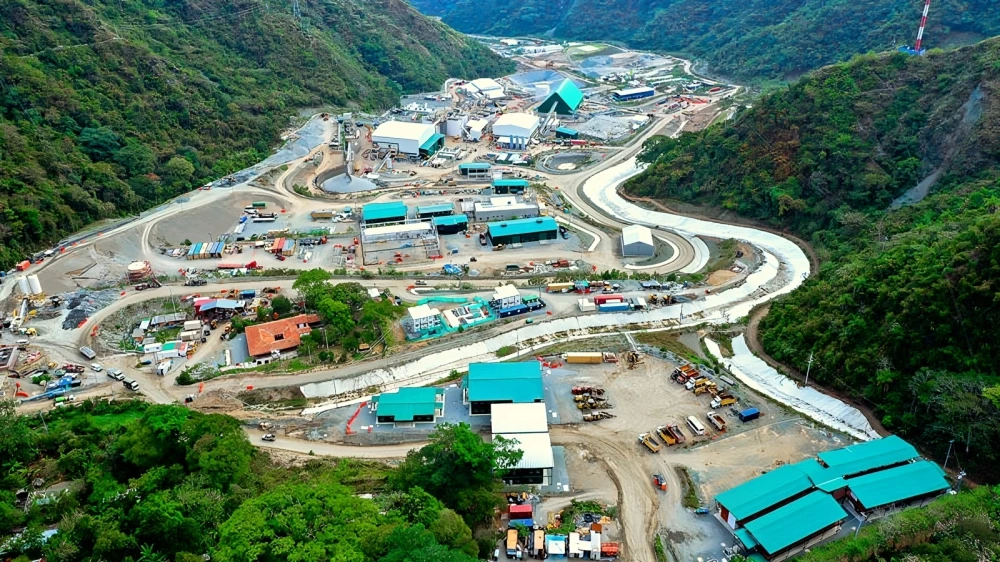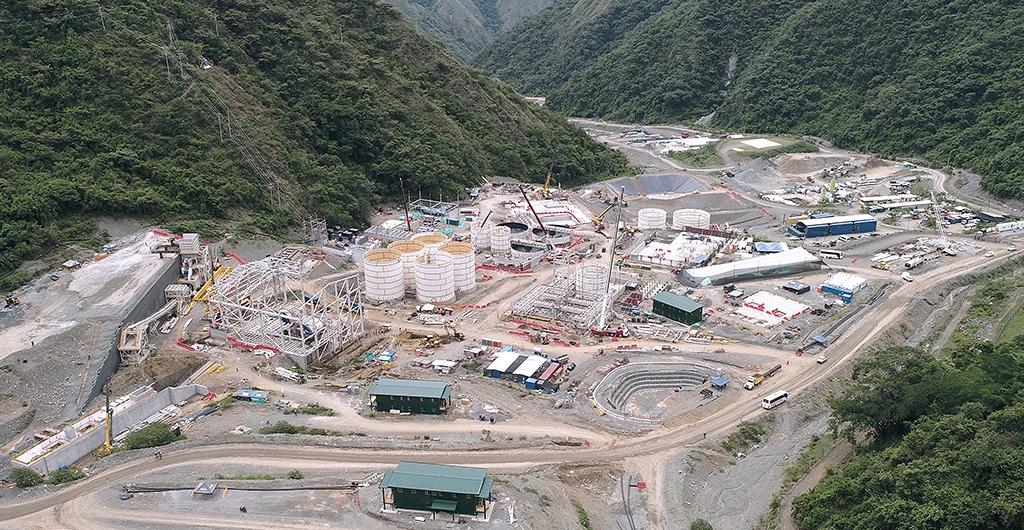Colombia’s gold mine standoff: Illegal miners, gangs threaten Chinese-owned site
 Gold mine in Buritica owned by the Chinese company Zijin Mining Group (Photo via Zijin Mining Group)
Gold mine in Buritica owned by the Chinese company Zijin Mining Group (Photo via Zijin Mining Group)
In Buritica, Colombia’s richest gold mine, owned by the Chinese company Zijin Mining Group, a standoff is unfolding between private security guards and drug-trafficking gangs, with illegal miners competing for control over valuable gold deposits.
Backed by the Gulf Clan militia, an estimated 2,000 illegal miners now occupy about 60% of the mine’s tunnels, extracting millions of dollars in gold.
Zijin Mining Group estimates that illegal miners stole over 3.2 tons of gold last year, totaling around $200 million and representing 38% of the mine’s production.
Despite daily skirmishes and an ongoing lawsuit filed with the World Bank’s International Center for the Settlement of Investment Disputes, Zijin has been unable to halt these illegal operations, putting its $1 billion investment at risk.
Why it matters?
- Economic and environmental costs: Illegal mining significantly impacts Colombia’s economy, with an estimated $100 million lost each year in tax and royalty payments. Across South America, illegal gold mining also drives deforestation, mercury pollution, and conflicts with indigenous groups.
- Armed conflict and security risks: Fighters from the Gulf Clan support illegal miners with explosives and gunfire, often forcing Zijin guards to retreat from critical mine areas. The violence has led to casualties on both sides, creating hazardous working conditions for both legal and illegal miners.
- Political shift under the new government: Since taking office, leftist President Gustavo Petro’s administration has moved away from prior policies that prioritized protecting mining operations. The new administration advocates for a shift toward sustainable industries and has been critical of large-scale mining, favoring the development of artisanal mining cooperatives.
- Zijin’s legal and diplomatic responses: Facing mounting losses and limited government intervention, Zijin filed a lawsuit against the Colombian government, arguing that authorities have failed to fulfill their security obligations. The company has called for renewed efforts to block illegal access points, strengthen security, and cut power to tunnels used by illegal miners.

What’s next?
- Government’s proposed solutions: Colombia’s defense ministry and mining authorities suggest transforming Buriticá’s economy to provide sustainable job alternatives. The government has proposed forming legal mining cooperatives and is encouraging Zijin to consider ceding parts of its concession to local artisanal miners as a potential peace strategy.
- Ongoing violence and security challenges: Daily underground confrontations continue as miners, using basic drills and explosives, dig tunnels that lead to Zijin’s main mining areas from private homes above ground. Despite military and police presence in Buriticá, limited resources and legal constraints hamper efforts to reduce the Gulf Clan’s influence in the area.
- Impact on Colombia’s mining policies: Amid growing tensions, Colombian authorities are under pressure to balance foreign investment with the socio-economic needs of local communities. The state Inspector General’s Office is calling for a robust plan to curb illegal mining, though the administration remains cautious about using force because of civilian safety concerns.



